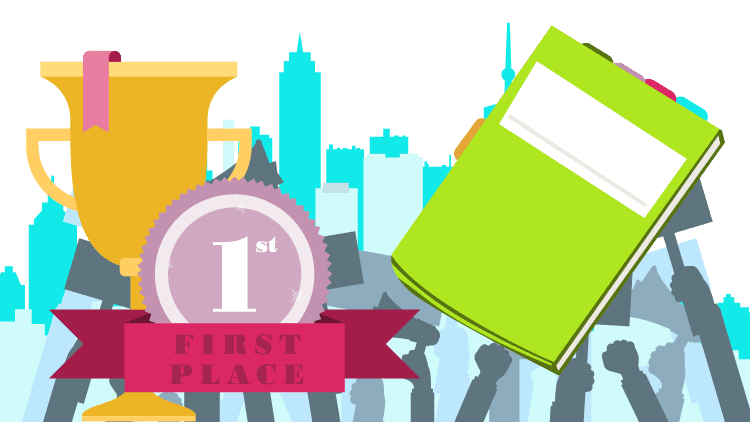
Step Up From the Crowd by Improving Your Translation Skills
How to Improve Translation Skills
Every business needs a good translator. This job makes a good choice for anyone who has some translation potentials. You just need to be aware of several things if you decide to become a full-time or a part-time translator. The most important one is to improve your translation skills and knowledge.
Four major translation skills are necessary for a translator to master before he/she begins working for an USA translation agency: reading, researching, and analytical and composing skills.
Reading
When you just read a text, this is some sort of translation. When you start translating, you do not divide your work into several phases. After you complete your first translation, numerous automatic gears will start to flow naturally and you will finish it more quickly, becoming less conscious of the action.
There are primary reading skills that any translator has to obtain:
Find the essence and the main topic:
- Pay attention to details;
- Learn the meaning of new words and phrases using components of analysis of structure: prefixes, suffixes, punctuation, word order, and so on;
- Spot the meaning of new words and phrases from the context;
- Pay attention to the style of writing: technical, scientific, informative, etc.

Research
If you fail to understand the word, it is easier to look for it in the dictionary. Every good translator must know that there are many kinds of dictionaries: current English dictionary, dictionary of idioms, phrasal verbs dictionary, slang dictionaries, bilingual dictionaries, mechanical dictionaries, monolingual dictionaries, and many more.
Today, finding the meaning of a word is much easier and faster with the use of software translation programs and tools online. Translation tools have become a necessary asset because they save time and increase the quality of work so mastering such tools should be on the translation skills list.
Analysis
Two main stages appear in the translation process: analysis and synthesis. In the analysis stage, the translator analyzes the original text in order to gain the meaning as much as possible. In the synthesis stage, the translator conveys the meaning into another language, appropriate for the readers, and this text is now transformed (metatext). There are several ideas necessary in the stage of analysis:
- Identify the ideas in the text and find their mutual relationship;
- Think of the right meaning that can fit into the context;
- Find the appropriate formation in the end language that reflects the original;
- Find the best connections between ideas in the target language that will reflect the original at the same time.
Composing
This is the final stage when you collect all your results and put them into writing. It is important that the writing is coherent and makes sense, so make sure you follow these rules:
- Be careful to use the appropriate word order and grammar as it is in the target language;
- Transfer the meaning from one language to another without losing the sense;
- Transform some phrases in order to provide complete meaning;
- Make the whole text sound natural without losing the original meaning;
- Do not forget to use English translation tools for the best results.
What else to keep in mind
Before you become the best translator with a lot of expertise, there are some things translators must be good at and must be willing to do at all times; these things also help them improve their translation skills and gain expertise in a certain language, the ways it is spoken and the way it is read.
Like a writer, the translator also needs to read more and more in order to be fluent in that language, read and observe, focus on details, think them through and extract out the possible meanings of a word in order to master that language. Every language follows the same pattern of formal and informal, but the way of doing so is different than one another. In order to master the translating skills, people need to learn those ways, so they are able to translate all kinds of documents, such as medical, technical, legal and to translate immigration documents.
Translation Success Strategies
In the dynamic field of translation, success hinges on a myriad of factors. Native speakers with exceptional communication skills and proficiency in source languages lead the way in delivering accurate translations. Experienced translators adeptly navigate language barriers, ensuring quality in various domains like legal and technical documents. Embracing translation memories and machine translation aids, freelance translators carve a rewarding career path in this diverse industry. From literary to technical translation, success thrives on the seamless blend of linguistic mastery and professional expertise.
In the bustling translation industry, achieving excellence requires a multifaceted approach. Native language proficiency and effective communication skills serve as the bedrock of success, enabling translators to provide top-notch customer service and deliver accurate translations across a wide range of fields. From legal documents to medical terminology, translators leverage their language skills and specialized knowledge to ensure translation quality and meet the diverse needs of clients. By employing translation software and adhering to rigorous terminology management, professionals navigate translation projects with finesse, laying the groundwork for a successful career in translation. Whether engaged in literary translation or supporting business strategies, successful translators play a pivotal role in facilitating effective communication and driving business growth through their professional translation services. With a keen understanding of the English language and a strategic business mindset, translators position themselves as indispensable assets in the global marketplace.
These translation skills are necessary to help you become a good translator. These basic ideas are for beginners, but they also apply to professional translators.
Frequently Asked Questions
How can I improve my translation skills?
Improving your translation skills requires consistent practice and exposure to diverse language materials. Engage in daily translation exercises, read extensively in both your source and target languages, and seek feedback from experienced translators to refine your techniques.
What resources can I use to enhance my translation abilities?
Utilize a variety of resources such as dictionaries, translation software, online forums, and language courses to bolster your translation skills. Additionally, networking with other translators and attending workshops or conferences can provide valuable insights and opportunities for growth.
How important is cultural understanding in translation?
Cultural understanding is crucial in translation as it influences language nuances, idiomatic expressions, and contextual meaning. Take the time to immerse yourself in the culture of both the source and target languages to ensure accurate and culturally appropriate translations.
What strategies can I employ to overcome translation challenges?
When faced with translation challenges, break down complex texts into manageable segments, research unfamiliar terms or concepts, and consult reference materials or subject matter experts as needed. Additionally, develop a systematic approach to tackle translation projects, focusing on clarity, accuracy, and consistency.
How can I measure my progress in translation improvement?
Track your progress by setting specific goals for skill enhancement, such as increasing translation speed, expanding vocabulary, or mastering specialized terminology. Monitor your performance through self-assessment, feedback from peers or mentors, and the quality of your completed translations.


